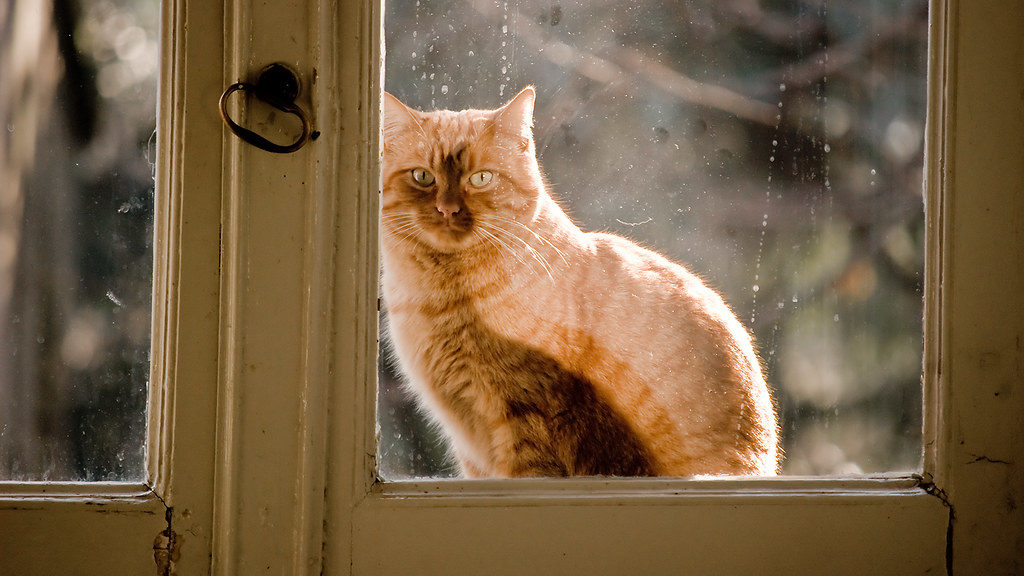The majority of cats in the United States spend part of their lives outdoors. However, an increasing number of cat owners choose to keep their cats indoors all of the time. There are many health advantages to keeping your cat indoors so if your cat has the correct personality, living indoors may be the best option.
Cats, being natural explorers and predators, absolutely love all the exciting sights and sounds of the outdoors. Just observe a cat sitting in a window watching intensely and chattering at an outside bird to witness their fascination. You may want to consider a window perch or cat tree so your cat can get a “birds-eye” view of the outdoors.
On the other hand, a properly cared-for cat with the right personality is perfectly content to spend his/her entire life indoors. And, frankly, the outdoors has many potentially dangerous situations. In fact, the average life expectancy for an outdoor cat is about 3 years, compared to twelve for an indoor cat.
Outdoor Dangers for Cats
Some of the most common dangers for outdoor cats include:
- Outdoor cats are more prone to infectious diseases because of encounters with wildlife and other outdoor pets. Also, outdoor cats are more likely to consume poisons. If your cat must be outside, make sure your cat is fully vaccinated and spayed, or neutered.
- An outdoor cat darting across the street is a perfect target for a moving vehicle and cats that are hit by cars rarely survive.
- If your cat gets into a territorial fight with another cat and is bitten, it could develop an infection that could send her to the veterinary emergency clinic. In many areas, wild animals are also potential predators. Always check your cat for painful lumps, bumps, and other wounds.
- Not all people love cats. And many cities have laws against stray animals, including cats. Your cat may be picked up by Animal Control and you’ll pay a hefty fee to get it back.
Safety Measures for Outdoor Cats
- Provide your cat with a harness or collar that includes an identification tag with your contact information
- Make sure they are fully vaccinated and are spayed or neutered.
- Attach a bell to their collar to prevent them from killing songbirds or small mammals and to alert people that they are around.
Keep a close eye on your cat if you have busy roads or dangerous dogs in the neighborhood. It may be worth it to train your cat to walk on a leash. Many cats can satisfy their desire to be outside with a daily walk.

